Stuart Carruthers's Blog, page 5
January 19, 2012
My book is on Amazon - A short novella about Ha...
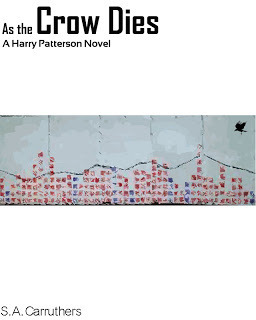
My book is on Amazon - A short novella about Harry Patterson getting caught up with a Chinese tech co and the Chinese secret service. There's sex, there's violence, there's computers what more could a geek want?
What's more for a limited time you can download it for free from Amazon. But please review it.
http://www.amazon.com/As-the-Crow-Dies-ebook/dp/B006ZHK4JY/ref=sr_1_1?s=digital-text&ie=UTF8&qid=1327017977&sr=1-1

Published on January 19, 2012 16:19
November 21, 2011
Another New Novel(la)
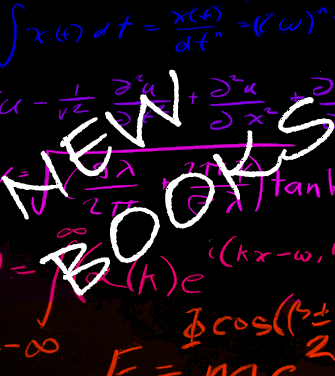
Whilst my last novella is being read and edited by some dedicated friends, I decided not to let the grass grow under my feet and start writing the next book.
The version being edited, is a murder-mystery set in China and follows the trials of a hack called Harry Patterson, who gets into far more trouble than he'd expected when he investigates a regular story in Beijing. Fuck Off, Chip will be the first of a series of Harry Patterson novels to be written over the next few years. But in the meantime the new story is a change of pace and a departure from murder-mystery and into science fiction.
Writing Fuck Off, Chip taught me many things which should hopefully speed up the writing of Black & White. Things such as planning and not just writing into the air will at least give me a sense of direction; the established use of spreadsheets will help organize the story and its sections and having established that writing in small chunks using Q10 is better for focusing my mind and not getting bogged down in pages upon pages of text I now have the best tools for my job.
So on with the writing!!

Published on November 21, 2011 18:55
November 17, 2011
Work tools
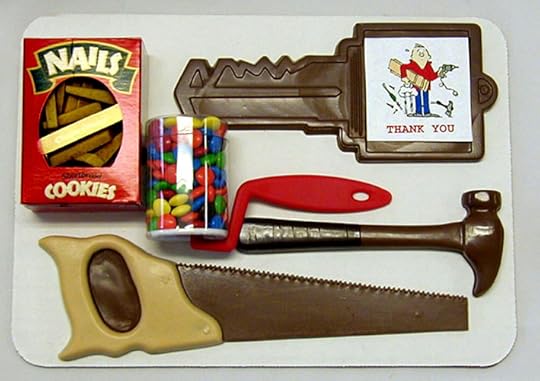
I wrote before about the tools used to write and about how I found using spreadsheets to be a great way of planning a book.
Well recently, I've been getting pretty fed up with my copy of X-numeric throwing up odd error messages, so I looked for new spreadsheet packages that would provide what I need for writing ie just give me columns and rows to write in. But, as you'd imagine most spreadsheets are designed to compete with Excel and provide more bells and whistles than I need.
Eventually I found Spread 32 a free, very small bare-bones spreadsheet on a copy of Floppy Office. It's even smaller than the one written by the people at Bye Design. I don't mind about the lack of color in the FO version but it's one limitation is that it only recognizes files in its own format. So I can't import old spreadsheets. But that's not a major hindrance and so long as this one keeps doing what I need it to I'll stick with it.
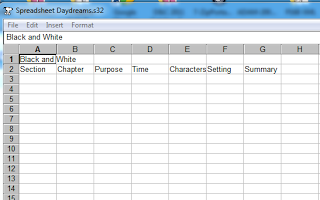

Published on November 17, 2011 20:47
November 10, 2011
Is the end in sight?
[image error]
Another 7,000 odd words and the end is getting closer. It still has a way to go but it feels stronger for the edits that were suggested by friends.
Originally I wanted to leave it all hanging, like the final scene of the Italian Job (the original version, that actually took place in Italy!) but it did feel incomplete. So, I've compromised and wrapped it all up except for one little bit.
Now, it's time to get the red pen out and look through the whole thing before giving out to my friendly editors.

Published on November 10, 2011 01:10
November 1, 2011
New Header

After the feedback I received I've been busy making the edits. It's certainly been a challenge and if I'm honest I was aware of many of the faults, so these comments just kicked me in the pants.
But making these changes is tiring and often demoralizing, especially when I hit a brick wall. To get over the hump I write other things, a change of pace and a change of scene often does the world of good.
With that in mind here's one I knocked up earlier.
A Deists Dream
The Universe was not, as some would believe, a master stroke of engineering
created by some divine being. It was a fluke: a one in an infinitesimal chance
against. It made the chances of finding you're holding the
winning the lottery whilst being charged by a herd of elephants in your high
street, seem pretty big. And then there's life, sentient living
breathing rutting life. You think that there's life on your cheese after
it's been left
in the fridge to become a hairy scrotum after a sweaty day playing rugby. Nope
that's just mold, absolutely no chance of anything interesting happening there.
It basically takes, as any scientist will tell you, a lot more luck than
that.
Tuesday
afternoon and our hero is bored, he's sitting through another lecture
on
the
history of someone or other who did something
really amazing. With a pad of paper on his lap and a clutch pencil in
his
hand he started to doodle. The lines flowing, like a melting glacier,
that
would etch their way into the papery fibers coating the micro-filaments
with a
gray
powdery soot. By the end of the lecture. it's a mess of assorted lines
and shapes,
nothing of any interest to him or future archaeologists. He tears the
sheet of paper off the pad and shoves it deep into his jacket pocket.
The next day he finds himself sitting on a bus, going to meet some friends.
It's a long journey and he hasn't got a book to read, so he shoves his hands in
his jacket pockets and pulls the collar up around
his chin to ward off the biting cold. Inside his pockets he finds the paper he'd drawn on the previous day,
he looks at it, smiles and stuffs his hands back, hoping that the thin fabric
will have some kind of curative effect on his circulation. He drifts off to
sleep and dribbles slightly. Waking with a start he finds he's missed his stop,
where is he? He panics momentarily. He's at the end of the line, miles away
from anywhere. He gets off
and waits for the next bus back.
Lunch the following day was lasagna and chips from the college canteen, he's
all but
forgotten about the paper that's still in the pocket of the coat he wore the
previous night. The frost from the previous night, has melted, leaving his
pocket slightly damp and smelling like his parents' wet Spaniel after a romp
through a muddy field.
He wakes late, misses his lectures, drags on his
clothes including the now musty jacket, he greets it like an old
friend, shakes
it and the paper and pencil fall onto the floor. Picking them up, he
shoves
them back into a pocket and heads out of the door. It's raining, the
harsh wind
drives it hard into his face, his coat wasn't designed for this, he
wipes the
spray from his eyes, hoping that his eyelashes will stay clear enough
to cross
the road. They don't, and as he crosses the road he momentarily finds
it odd that he's suddenly flying through the air when just as suddenly
he lands on the cold wet tarmac. Muffled noises surround him and then
silence.
His fish supper went cold that night. He wakes the next morning in a
strange bed, and,
except for the beeping machines complete silence. He tries to move,
everything
aches. He sees his clothes in the corner of the room. A nurse comes in,
he asks
for them. The black jeans have been torn and sliced, from the tarmac
and the nurses'
scissors; the jacket survived more or less intact. The paper and pencil
are still in the pocket: battered but still working. He bites through
the pain
and draws more, adding more complexity to Tuesday's doodle.
And there he leaves it. He closes the cover of his pad and darkness
envelopes
his etchings. Unknown to him, the water, the cold and collision with a
car have
created the perfect storm and a universe is created and our hero has
become a God. In time this universe gives birth to sentient beings, but
he doesn't know about them.
Time passes and he grows older, the young man becomes a young father
who becomes a middle aged parent before becoming a grandfather and finally an old man. Still
unaware of the lives he kick-started all those years ago. He dies and his
unknown legacy lives on, still foolishly worshiping a man who knew nothing of their existence neither knew nor
cared.

Published on November 01, 2011 01:49
October 3, 2011
First Draft is Being Read
[image error]
I've now handed a first draft of the book on to a couple of friends who's opinions I value. So far it's been very positive. Once I've made their changes I'll throw it out to a wider audience.
This is important for a couple of reasons:
1. It's nice, if the reviews are positive, to have the ego massaged and I trust my friends to be honest and not spare my feelings.
2. It helps to untangle any messes that may have been unintentionally created.
3. In my case they also have knowledge about the area I'm wring about so they can provide specific information and added details to add extra realism.
So, now it's on with the rewrites!!

Published on October 03, 2011 00:57
September 7, 2011
Mind Mapping your way out of problem
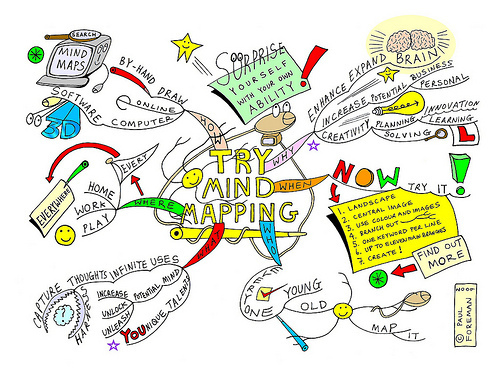
I last mentioned that I was having problems getting to the bottom of my plot. I needed to know exactly why the plot was happening in the first place. The problem is I had all of these thoughts but no way of linking them together and expanding upon them.
So I turned to mind mapping, a simple technique to resolve any creative problem because it's basically a mind dump. Here's a précis of the techniques suggested by Tony Buzan in The Mind Map Book
1 The quick-fire Mind Map burst
Draw a stimulating central image on a large
blank page. And for 20 minutes (no more) let ideas flow as fast as possible.
Take
a break (to rest the brain)
2 First reconstruction and revision
Make a new Mind Map:
Identify the major branches or Basic Ordering Ideas, combining,
categorising, building up hierarchies, finding new associations, and reconsidering in the context of the whole Mind Map any ideas
that initially appeared 'stupid' or 'absurd'.
3 Incubation
Go for a walk and relax.
Sudden creative realisations often come when the brain is
in a relaxed, peaceful and solitary condition- perhaps when walking, running, sleeping or daydreaming.
4 Second reconstruction and revision
Do another quick-fire Mind Map burst
to consolidate the results of this integration.
Consider all the information gathered and integrated
in stages
1, 2 and 3 in order to make a comprehensive
Mind Map.
5 The final stage
Search for the solution, decision or realisation which was the original creative thinking goal.
Link disparate elements in the
final Mind
Map, leading to major new insights and breakthroughs.

Published on September 07, 2011 17:36
September 6, 2011
A leaky plot
 Not so much of colander more of bucket without a bottom. Whilst editing I've discovered a hole in the plot that desperately needs filling.
Not so much of colander more of bucket without a bottom. Whilst editing I've discovered a hole in the plot that desperately needs filling.I knew it was there, but figured I'd just ignore it since solving it will take a lot of work and thinking. Let's face it it's more enjoyable to be writing and letting it flow and worrying about plot points later.
Now is later. Working through the revisions in my spreadsheet it's easier to see where the hole's are. The problem is I'm not sure how to fix this hole, maybe I'm also scared that the potential explanation will get out of control, so I'm self editing before I even write it.
Resolving this issue has now become my main priority! Mind Maps here i come.

Published on September 06, 2011 01:21
August 30, 2011
Writters Block
It's been a long time since I posted and there are many reasons excuses but the main reason was writers block. I'd written 17-18,000 words and had ground to a halt. I couldn't see how to move forward. The idea of painfully sitting and reading the whole thing with a red pen was excruciating. I did it for a while but Christ it was boring. I knew I needed a new approach if this was ever to move on.
I was reading Darcy Pattisons blog and somewhere she mentioned about spreadsheet editing and since I was messing around writing short stories and doing some e-book formatting in InDesign I needed another distraction.
Spreadsheet editing takes a series of columns labelled:
Section - a number
Chapter - The chapter name or number. This includes several sections.
Purpose - Why is this section here what purpose does it serve
Time
Day
Time-of-day
Characters
Major
Minor
Setting - In a living room in an office or wherever
Summary - I don't use this as a summary more of a place to keep all of the work that I've been editing. so it's the most up to date version of the novel
Follow Up - bits' that need to be researched websites, images etc.
I took my original draft and broke it down into sections and at last I had something I could look at in small chunks.
Once in the spreadsheet I tried to edit directly in there, but spreadsheets are crap for editing large amounts of text, despite working on a large widescreen monitor. So I went back to basics and copied the Summary text into Q10 which I keep on a USB flash drive with PortableApps installed.
And now because I'm only ever working in chunks of 500 or 1000 words it's easier to see what I'm working on at any given time and therefore ensure that there are consistencies and because it's always in the spreadsheet I can see at glance that I've got the character names correct and should I need to move a scene around from one place to another I can.
So with things going again it's full steam ahead.

I was reading Darcy Pattisons blog and somewhere she mentioned about spreadsheet editing and since I was messing around writing short stories and doing some e-book formatting in InDesign I needed another distraction.
Spreadsheet editing takes a series of columns labelled:
Section - a number
Chapter - The chapter name or number. This includes several sections.
Purpose - Why is this section here what purpose does it serve
Time
Day
Time-of-day
Characters
Major
Minor
Setting - In a living room in an office or wherever
Summary - I don't use this as a summary more of a place to keep all of the work that I've been editing. so it's the most up to date version of the novel
Follow Up - bits' that need to be researched websites, images etc.
I took my original draft and broke it down into sections and at last I had something I could look at in small chunks.
Once in the spreadsheet I tried to edit directly in there, but spreadsheets are crap for editing large amounts of text, despite working on a large widescreen monitor. So I went back to basics and copied the Summary text into Q10 which I keep on a USB flash drive with PortableApps installed.
And now because I'm only ever working in chunks of 500 or 1000 words it's easier to see what I'm working on at any given time and therefore ensure that there are consistencies and because it's always in the spreadsheet I can see at glance that I've got the character names correct and should I need to move a scene around from one place to another I can.
So with things going again it's full steam ahead.

Published on August 30, 2011 18:17
May 5, 2011
Keep plugging away
Well it's been a while since I updated this page and nobody seems to be reading it so what the hell? Resistance is the worst thing that we face. It's easy to come up against resistance and not break through it. As a writer with a full time job and a 3 year old it's hard to find the time to actually do the writing.
So what have I done about it? Well over the last couple of weeks I've come across a couple of really good self help books, bear in mind that I can't normally read these things as they're full of unproven platitudes for the weak willed. So what changed? The first one "Do the work" by Steven Pressfield tells you how to break through the resistance we all feel when doing any big project but the one piece of advice i found realy useful was from an interview he did where he told a writer to just write for 2 hours in one go, ignoring all else that is going around him and not self editing as he was doing it. I never managed the 2 hours but 90 minutes was enough to type 5000 words completely unedited. I'll worry about the editing at the end, the most important thing for me right now is to get the bloody novel written.
The other book is "59 seconds" a self help book with a difference, all of the techniques have been backed up by psychological research and will take you less than a minutes to do. Want to get creative do suduko or a word finder puzzle before hand and your sensisble side will be taken care of to let your creative side do the creating. Ok, so I'm paraphrasing but you get the point.
So push past the resistance and get writing

So what have I done about it? Well over the last couple of weeks I've come across a couple of really good self help books, bear in mind that I can't normally read these things as they're full of unproven platitudes for the weak willed. So what changed? The first one "Do the work" by Steven Pressfield tells you how to break through the resistance we all feel when doing any big project but the one piece of advice i found realy useful was from an interview he did where he told a writer to just write for 2 hours in one go, ignoring all else that is going around him and not self editing as he was doing it. I never managed the 2 hours but 90 minutes was enough to type 5000 words completely unedited. I'll worry about the editing at the end, the most important thing for me right now is to get the bloody novel written.
The other book is "59 seconds" a self help book with a difference, all of the techniques have been backed up by psychological research and will take you less than a minutes to do. Want to get creative do suduko or a word finder puzzle before hand and your sensisble side will be taken care of to let your creative side do the creating. Ok, so I'm paraphrasing but you get the point.
So push past the resistance and get writing

Published on May 05, 2011 20:54























